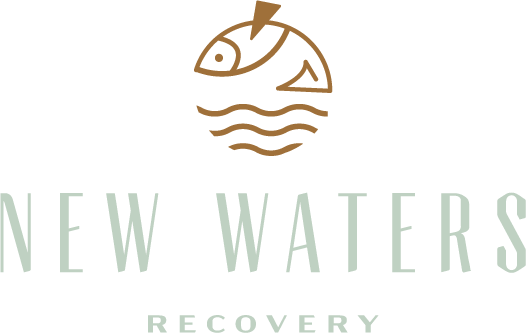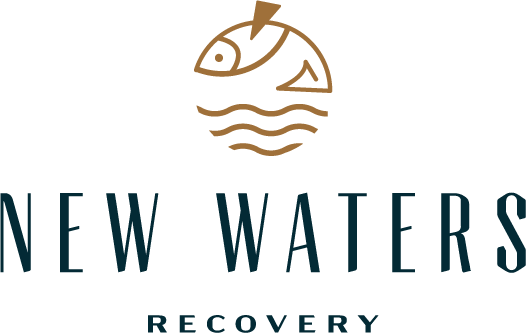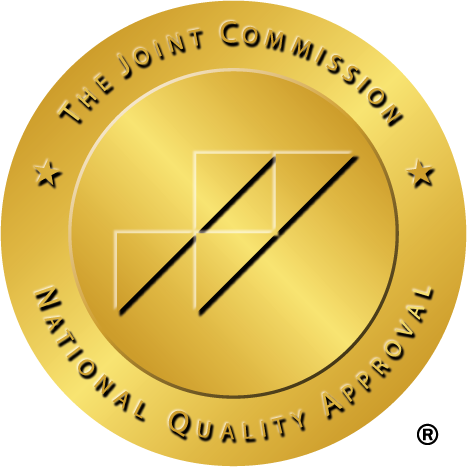Table of Contents
You might have heard about people taking ‘downers’ or ‘uppers’ before, even if you don’t use them yourself and aren’t a part of drug culture.
Downers are a common nickname for drugs that have a sedative effect on users, especially drugs that produce a ‘calm high’. A lot of these drugs are dangerous when used recreationally, or even just when used more or more often than allowed in your prescription for them.
However, in part, because people like the calming effect and the relaxation they can get from abusing downers, these drugs are relatively commonly abused, which can cause some serious risks for users.
Here’s what you need to know about downer drugs, how they work, the risks and side effects of using them, and your treatment options if you’re dealing with an addiction to downers.
What Are Some Examples Of Downer Drugs?
There are quite a few different downer drugs out there, and a lot of people don’t realize how many there are or how commonly abused they can be.
Part of the reason for those misperceptions is that alcohol is a downer drug, and one of the most commonly used and abused.
Cannabis may also sometimes be considered a downer, depending on the strain and dosage since cannabis is a biphasic drug that acts differently depending on when you take it and how much you take.
But even if you aren’t thinking about those two commonly used downer drugs there are still a lot of other downer drugs out there to consider.
For instance, any benzodiazepine is a downer. That includes drugs like Valium and Xanax, both of which are prescribed to help deal with anxiety and panic attacks.
Other drugs, especially emergency anxiety intervention drugs like Ativan, are also benzodiazepines, therefore downers.
Barbiturates are also downers. These drugs are mostly used to help people with insomnia get to sleep and get better sleep. In some cases, they may also be used as an anti-convulsant, but that’s a little rarer.
As you can see, there are a lot of potential downer drugs out there, but why are these drugs prescribed, and why do people sometimes choose to abuse them?
What Do Downer Drugs Do To One’s Brain And Body?
To understand downer drugs, it’s important to understand how these drugs function, what they do when used properly as well as what they do when you abuse them.
The first thing you need to know is that the technical term for a drug that’s a downer is a depressant. Depressants work by depressing or slowing, the central nervous system.
Different kinds of downers slow the central nervous system in different ways, but with similar effects in the end. The difference between drugs is either a difference in the mechanisms used, which leads to a different drug classification, barbiturates, benzodiazepines, and some others. Or it’s a difference in potency.
That’s because different drugs are used for different reasons, and different potencies can be used to create the desired effect.
For instance, a medication that’s being used as a long-term maintenance anxiety treatment is meant to intervene in low-level anxiety and help to prevent the physical mechanisms that cause more extreme anxiety without entirely preventing it.
Higher levels of anxiety might need a stronger medication to help control them, which is why stronger medications are often used as an emergency or as-needed intervention instead of being taken regularly.
Of course, other uses of these drugs, including relieving severe anxiety or helping to prevent seizures might take higher doses, stronger versions of the drug, or more regular use depending on the individual, how they respond to each medication, and how often they need to take the medications to get an effective dose.
However, anytime you’re messing with the natural function of the central nervous system, even to help the person regulate and live a healthier life, there are risks.
For one thing, your central nervous system is responsible for everything your body does, including things your body does automatically like breathing. Depress the central nervous system too much and you might forget to breathe, breathe too shallowly, or have other unintended side effects.
It’s incredibly important with these medications to get the doses right and to monitor for unintended side effects and potentially dangerous interactions.
That’s one reason that drinking alcohol while taking these meds usually isn’t recommended. Alcohol can increase the effectiveness of these medications to a dangerous level and can also interfere with these drugs leaving your body as quickly as it normally would, which can mean that there will be more of the drug left in your system than there should be by the time you take your dose.
Of course, those risks are a big reason why abusing downer drugs can be such a problem. Let’s talk about it.
Risks & Side-Effects Of Using & Abusing Downer Drugs
One of the biggest risks of taking any class of medication that’s a depressant or a downer is that all of these medications can be addictive and can lead to chemical dependence that might make users use them irresponsibly or dangerously.
If you got the medications through a prescription and are worried that you’re starting to show signs of addiction you should talk to your provider, and see if there are good alternatives for the medication you are currently on, or if anything else you can do to help manage a growing dependence or addiction.
You should be prepared when having that discussion, that your doctor might recommend stepping down your medication and stopping entirely for a while.
That’s partially because addiction can be incredibly risky when you’re talking about downers. Accidentally taking too much of these drugs can have serious complications and can, in some situations, be fatal.
Medical interventions can usually help if you’ve taken too much of a downer, but they are far and away most effective when caught early and when the medical professionals treating the problem know what drug or drugs they are treating.
One of the other biggest risks of taking these drugs is mixing them, even accidentally.
Remember how we mentioned at the beginning of this article that alcohol is another downer?
Well, that’s important because it can be hard to use alcohol responsibly if you’re taking another downer, prescribed or not, and taking these drugs together significantly increases the risks associated with taking them.
Here are some common side effects of using and abusing downer drugs:
- Decreased blood pressure
- Disorientation or confusion
- Dizziness
- Poor coordination
- Memory loss
- Slowed breathing and heart rate
- Slurred speech
- Dilated Pupils
- Impaired judgment
- Paranoia
- Fatigue
- Suicidal Ideation
That last side effect is another serious risk to taking downers. It’s a bigger risk if you’re already depressed, have an anxiety disorder, have a history of trauma, or are insecure in your social groups and living situation.
The risk of suicidal ideation is typically low, but it may be most severe immediately after you start taking the drug, and may go away or stabilize over time.
However, if you do ever have suicidal ideation while taking these drugs you need to talk with your doctor immediately to make sure you’re safe and to create a safety plan or explore the option of taking additional other medications or stopping the downer and trying other management techniques for your condition.
As you can see, even when used properly these drugs can come with serious side effects that you should be aware of before you start them.
When abused, the risk of these side effects and the average severity of the side effects you get both increases.
That happens in part because no part of the drug is being absorbed and used by your body therapeutically or helpfully. So your body is having to deal with the full concentration, and all the effects of, a drug it likely doesn’t need.
Of course, there are also additional risks of side effects that aren’t as common, well known, or understood as the side effects on this list. If you take downers and have a potential side effect that worries you, even if it’s not listed here, you should reach out for medical assistance.
Addicted To Downer Drugs?: Addiction Treatment Options
Downers are known to be highly addictive, so it’s relatively easy to get addicted to them, especially if you’re already vulnerable and at higher risk of addiction.
Unfortunately, the people who most benefit from the use of downers are also often the people who are at greater risk of addiction.
If you suspect that you might be dealing with an addiction, have been taking more of these drugs than you should, or don’t feel like yourself when you aren’t using these drugs, it may be time to reach out and get help.
If you’re considering getting help for an addiction, good for you! Admitting that you might need help is hard, and you’re already well on your way to recovery when you’re able to admit that this is a problem and that you might need help to overcome it.
Addiction treatment centers are often some of the best places to deal with addiction to downers because they offer comprehensive support, including support for any mental health disorders that might have contributed to your original addiction.
That’s important because a dual diagnosis of addiction and any mental health disorder can make recovery more difficult, and requires specialized treatments and support to give you the best chance of success.
Are you serious about recovering from downer addiction? New Waters Recovery Treatment Center in Raleigh, North Carolina can help. Contact us to learn more about our programs, and the intake process, and to get answers to your questions.
We’re always happy to help. You don’t have to do this alone.
Sources:
New Waters Recovery has strict sourcing requirements, relying on sources from scholarly research and peer-reviewed studies, as well as those from medical associations. We keep away from using third-party references as our sources. In order to learn more about how we choose our sources and our sourcing guidelines, please reference our Editorial Policy.
NIDA. Prescription CNS Depressants Drug Facts. National Institute on Drug Abuse website. March 6, 2018, Accessed August 23, 2022. https://nida.nih.gov/publications/research-reports/misuse-prescription-drugs/overview.
Drugs.com. Barbiturates. Drugs.com. Published on Feb 5, 2019. Accessed August 23, 2022. https://www.drugs.com/drug-class/barbiturates.html.
Very Well Mind. How Depressants Affect Your Body. VeryWellMind. Published March 19, 2022. Accessed August 23, 2022.https://www.VeryWellMind.com/what-are-depressants-2795572.
New Waters Recovery Editorial GUIDELINES
At New Waters Recovery, we take your health and wellness seriously. We have a thorough process in place to ensure the integrity of information that is displayed on our website. All content published to our site undergoes a rigorous medical review by a doctorate level clinician to ensure medical accuracy. Read More About Our Process







